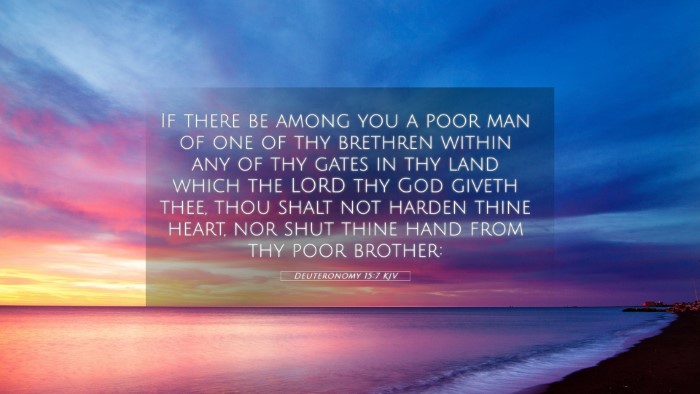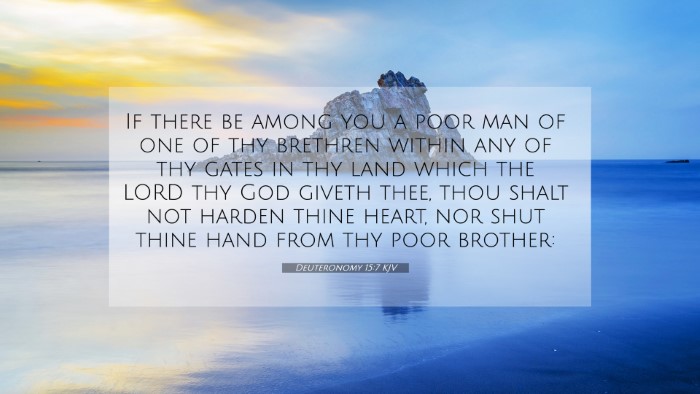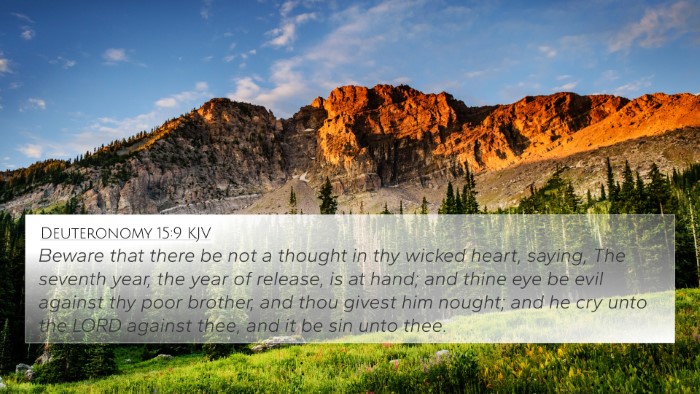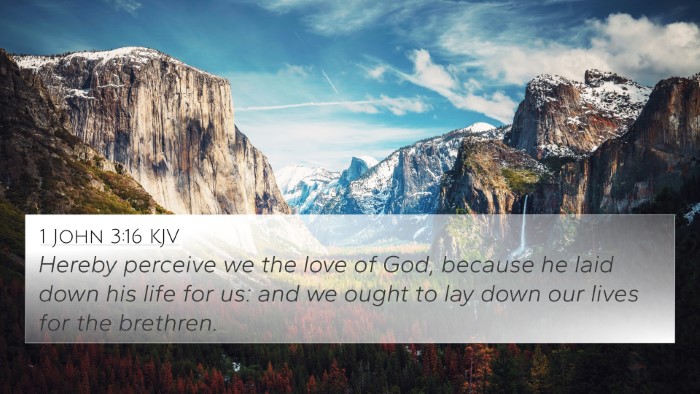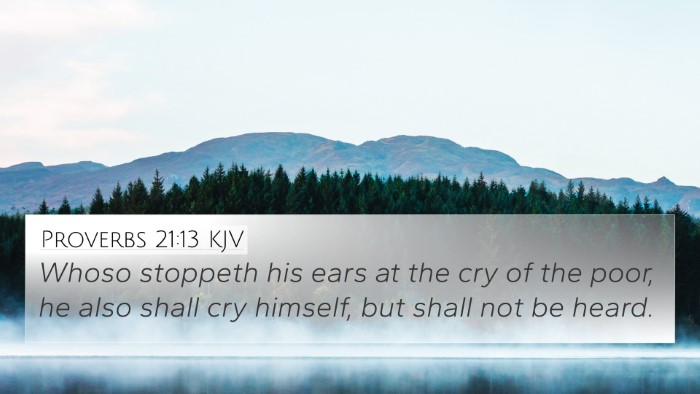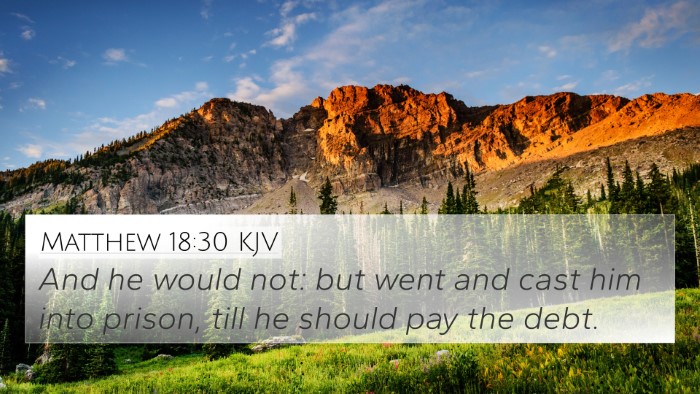Understanding Deuteronomy 15:7
Deuteronomy 15:7 states, "If there be among you a poor man of one of thy brethren within any of thy gates in thy land which the LORD thy God giveth thee, thou shalt not harden thine heart, nor shut thine hand from thy poor brother." This verse highlights the importance of compassion and generosity towards those in need, particularly within one's own community.
Context and Background
This verse is set within the broader framework of the laws given to the Israelites concerning social justice and mercy, particularly during the sabbatical year when debts were to be forgiven. It emphasizes God's concern for the welfare of the poor and the need for the community to take action.
Key Themes
- Compassion for the Poor: The verse emphasizes the need to show kindness to the less fortunate, mirroring God's own compassion.
- Community Responsibility: It stresses the social responsibility that individuals have towards one another.
- Spiritual Stance: The danger of hardening one's heart against the poor is a spiritual warning against selfishness.
Commentary Insights
Insights from various public domain commentaries provide a deeper understanding of this verse:
Matthew Henry's Commentary
Matthew Henry highlights that the commandment reflects God's concern for justice and mercy. He notes that having a compassionate heart is paramount, and that it's not merely about giving material assistance but about fostering a spirit of generosity that aligns with godly principles.
Albert Barnes' Notes on the Bible
Albert Barnes emphasizes the societal implications of this command. He points out that failing to support the poor not only harms the individual in need but also breaks the fabric of the community. Barnes further discusses the opening of hearts and hands as indicative of a genuine faith in action.
Adam Clarke's Commentary
Adam Clarke provides additional insight by discussing the broader ethical implications of this verse. He identifies it as a mandate for equity, suggesting that it not only instructs the Israelites to provide aid but calls for the establishment of a society that ensures no one is left in want.
Bible Verse Cross-References
This verse connects deeply with several others throughout the Bible, providing a wealth of thematic links and contextual understandings:
- Leviticus 25:35: "And if thy brother be waxen poor, and fallen in decay with thee; then thou shalt relieve him: yea, though he be a stranger, or a sojourner; that he may live with thee."
- Proverbs 28:27: "He that giveth unto the poor shall not lack: but he that hideth his eyes shall have many a curse."
- Matthew 5:42: "Give to him that asketh thee, and from him that would borrow of thee turn not thou away."
- Luke 14:13-14: "But when thou makest a feast, call the poor, the maimed, the lame, the blind... for they cannot recompense thee; for thou shalt be recompensed at the resurrection of the just."
- James 2:14-17: Discusses the importance of active faith demonstrated through works, particularly towards the needy.
- 1 John 3:17: "But whoso hath this world's good, and seeth his brother have need, and shutteth up his bowels of compassion from him, how dwelleth the love of God in him?"
- Galatians 2:10: "Only they would that we should remember the poor; the same which I also was forward to do."
- Isaiah 58:6-7: "Is not this the fast that I have chosen? to loose the bands of wickedness… is it not to deal thy bread to the hungry?"
- Psalm 41:1: "Blessed is he that considereth the poor: the LORD will deliver him in time of trouble."
- Deuteronomy 24:19-21: Provides further legislation regarding care for the poor during harvest.
Application and Reflection
This verse challenges individuals and congregations alike to reflect on their responsibilities toward the less fortunate. It emphasizes a call to action, urging believers to notice and address the plight of the poor within their communities. The spiritual consequences of neglect are severe, and engaging with the needy is depicted as not only a social necessity but a divine command.
Tools for Bible Cross-Referencing
For those looking to delve deeper into the connections between Bible verses, various tools can assist, including:
- Bible Concordance: A systematic guide to Bible verses that allows users to find themes and topics quickly.
- Bible Cross-Reference Guide: Resources that provide scriptural cross-references for further study.
- Bible Chain References: A methodical approach to connect verses based on related concepts.
- Comprehensive Bible Cross-Reference Materials: Collections of verses arranged thematically or topically.
Conclusion
Deuteronomy 15:7 serves as a powerful reminder of our call to love and serve one another, particularly the most vulnerable in society. It reflects God's character and challenges believers to embody His compassion through active faith.

